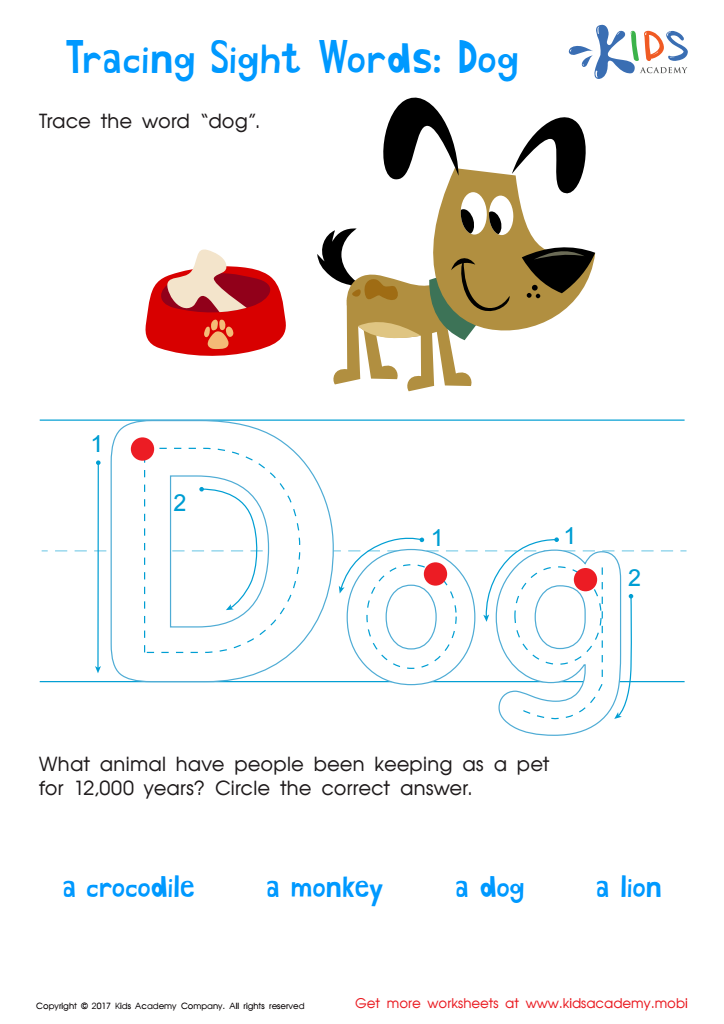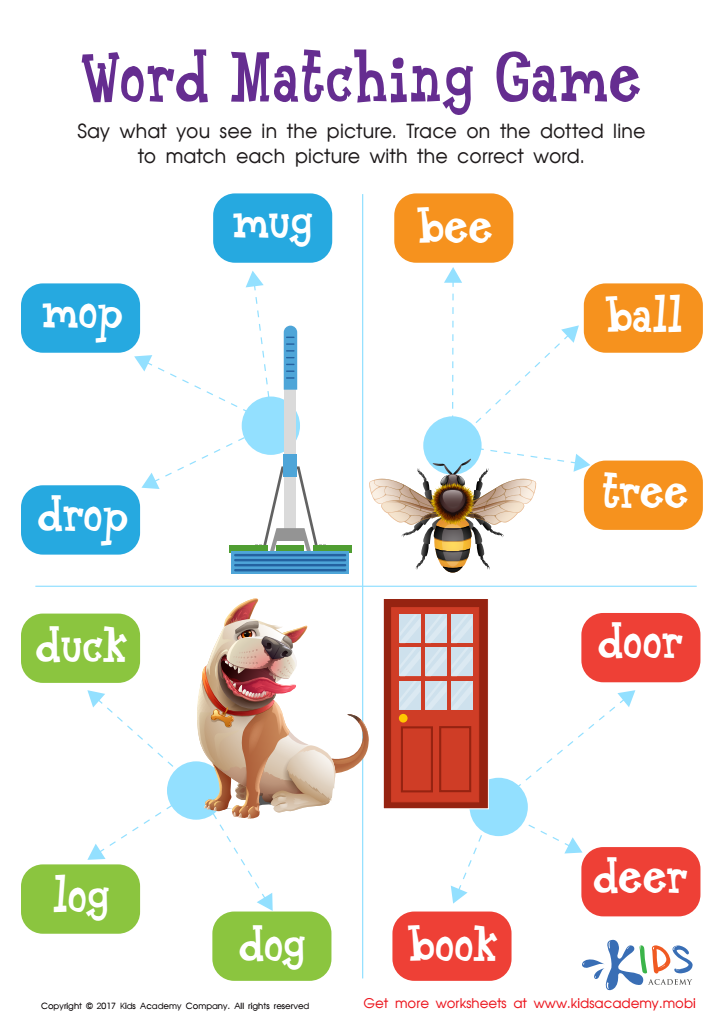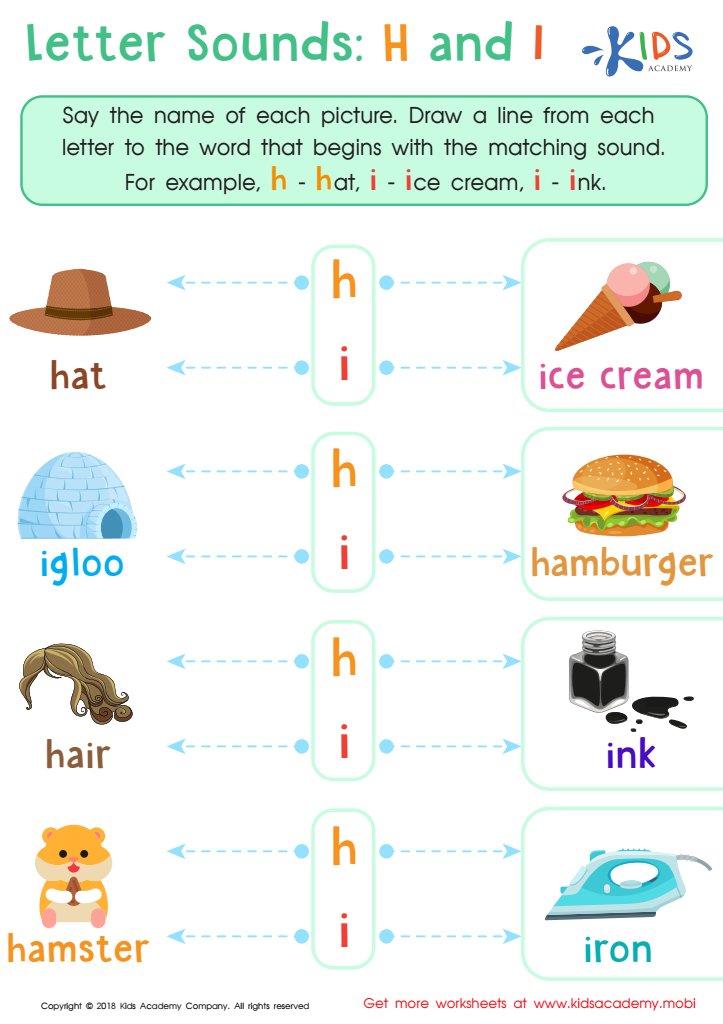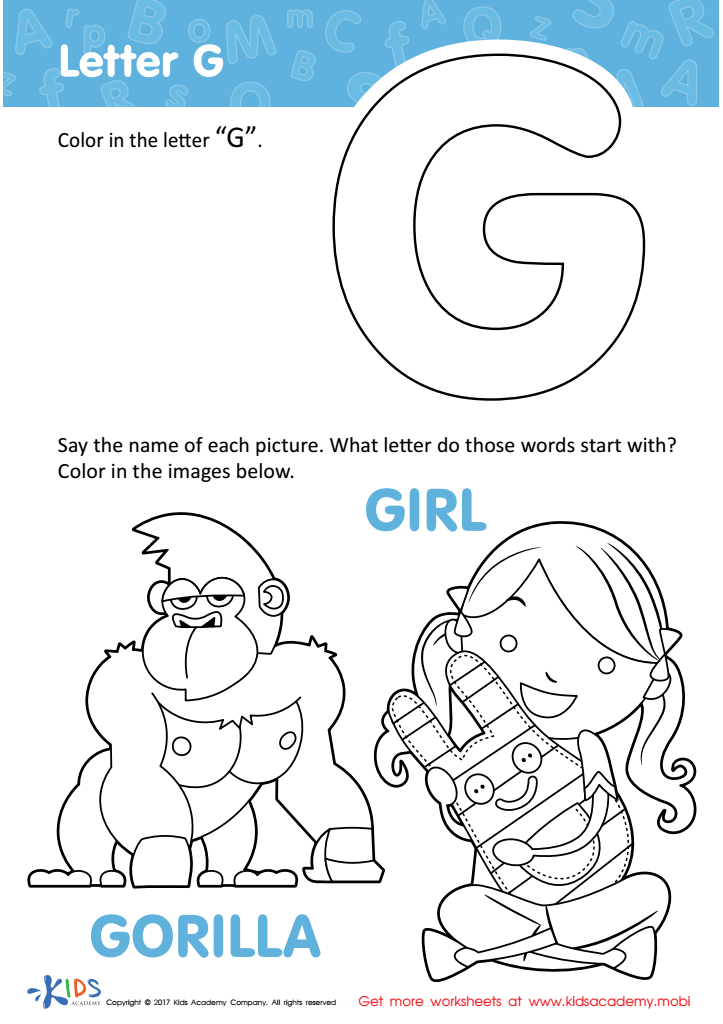Vocabulary Building Normal Alphabet Worksheets for Ages 3-5
5 filtered results
-
From - To
Boost your preschooler's vocabulary with our engaging Vocabulary Building Normal Alphabet Worksheets for ages 3-5! Tailored to ignite curiosity and enhance language skills, these worksheets incorporate fun activities centered around each letter of the alphabet. Young learners will enjoy colorful illustrations and interactive exercises that make learning new words exciting. Designed by educators, our resources foster early literacy development, helping kids recognize letters, expand their vocabulary, and build confidence as they explore language. Perfect for at-home practice or classroom use, these worksheets are an essential tool to support your child's linguistic journey. Start turning learning into play today!


Dog Worksheet Sight Words Worksheet


Word Matching Game Worksheet


Letter H and I Sounds Worksheet


Letter G Coloring Sheet


Words with sound p Reading Worksheet
Vocabulary building is crucial for children ages 3-5 as it lays the foundation for their language skills, literacy development, and overall cognitive growth. During these formative years, children are incredibly receptive to language, absorbing new words through interactions, storytelling, and play. A strong vocabulary enhances communication skills, enabling children to express their thoughts and feelings effectively.
Parents and teachers should prioritize vocabulary development because it directly impacts a child’s readiness for school. A rich vocabulary not only aids in comprehension and comprehension but also boosts confidence when engaging in conversations. Engaging children with stories, songs, and age-appropriate conversations helps cultivate a love for language and learning.
Furthermore, strong vocabulary skills are linked to academic success later on. Children with a broad vocabulary are better equipped to tackle reading and writing tasks, leading to improved performance in school.
By focusing on vocabulary building through fun and interactive activities, parents and teachers foster critical thinking and creativity in young children, preparing them for a lifetime of learning. In summary, supporting vocabulary development in early childhood is essential for cultivating effective communication, enhancing academic readiness, and promoting a love for language.

 Assign to My Students
Assign to My Students



















